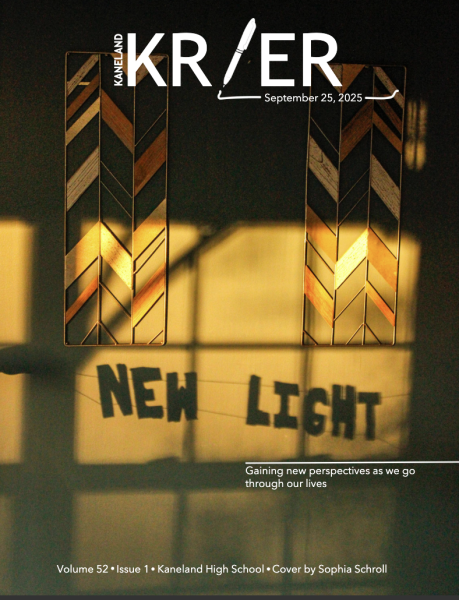Accepting holiday differences
Photo By Katrina Paulick
St. Charles decorates a street for the holiday season.
There are many different holidays celebrated in the winter season. Although the traditions and beliefs vary from one religion to the next the holiday’s meaning remains the same. Whether one celebrates Hanukkah, Kwanzaa or Christmas, each family unites together during this time.
The eight-day Jewish celebration known as Hanukkah commemorates the rededication during the second century B.C. of the Second Temple in Jerusalem. According to legend, Jews had risen up against their Greek-Syrian oppressors in the Maccabean Revolt.
Hanukkah, which means “dedication” in Hebrew, begins on the 25th of Kislev on the Hebrew calendar and usually falls in November or December according to History.
Often called the Festival of Lights, the holiday is celebrated with the lighting of the menorah, traditional , games and gifts.
“I like spending time with family and it’s always fun to do our own traditions,” sophomore, Julia Lemp said.
The name Kwanzaa is derived from the phrase “matunda ya kwanza” which means “first fruits” in Swahili, according to History.
Like other families celebrating the holidays, each family celebrates Kwanzaa in their own way. A typical Kwanzaa celebration often include songs and dances, African drums, storytelling, poetry reading, and a large traditional meal.
On each of the seven nights, the family gathers and a child lights one of the candles on the Kinara. A Kinara is a candle holder that contains three red candles on the left and three green candles on the right with just one black candle in the center. One of the seven principles is discussed each night for seven consecutive nights. The principles, called the Nguzo Saba, are values of African culture which contribute to building and reinforcing community among African-Americans, according to History.
Kwanzaa also has seven basic symbols which represent values and concepts reflective of African culture.
The Christian faith celebrates Christmas. Christians celebrate the birth of Jesus Christ, their Savior. Traditionally a family of Christian religion celebrates Christmas Eve, being the night before Christmas, and then the day itself which is held on December 25th each year.
Over the years this holiday has become also a day of giving gifts to one another. Many Christians celebrate with a big gathering and feast together. Many more popular customs include decorating Christmas trees, attending church, and, of course, waiting for Santa Claus to arrive.
December 25th has been a federal holiday in the United States since 1870 since the holiday is so common world wide according to History.
Although one may be far away from where they originated from, each one of these holidays is celebrated nearly world wide. Traditions grow and change but the purpose remains the same and can be looked back to from the beginning of time.
If there is one thing that unites every race, religion, heritage, and person together it’s the traditions that have been passed down for so many generations. The world is a diverse place, but everyone’s beliefs are valued equally.

Grade: 12
About their position: The design/content manager deals with the visual aspects of the Krier. Along with looking over the design, Katrina will...







